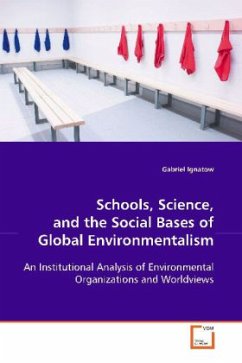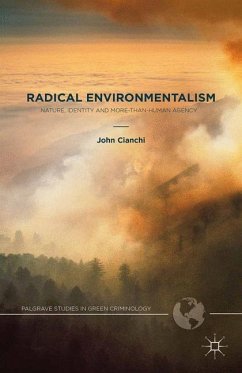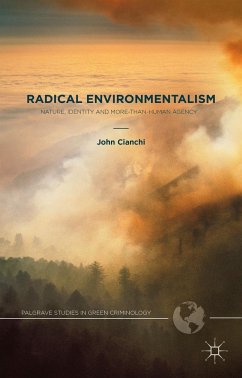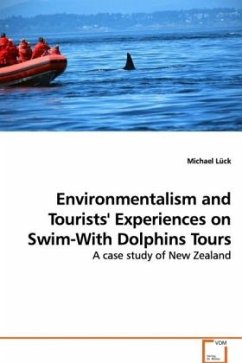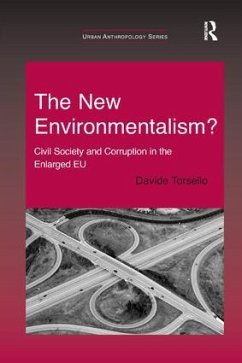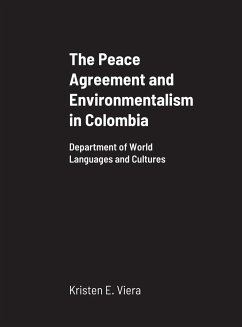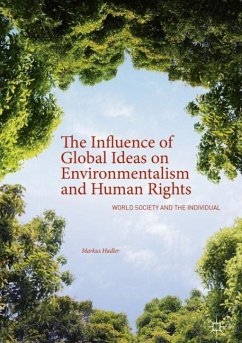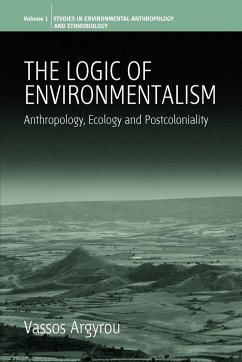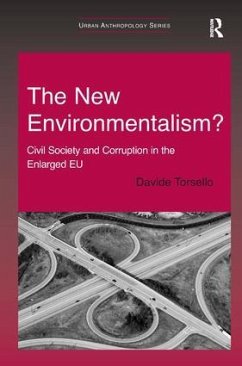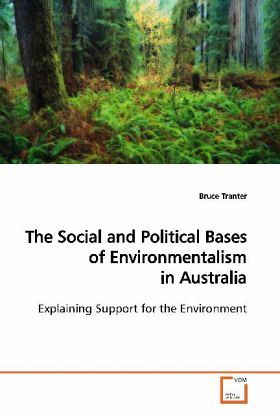
The Social and Political Bases of Environmentalism in Australia
Explaining Support for the Environment
Versandkostenfrei!
Versandfertig in 6-10 Tagen
52,99 €
inkl. MwSt.

PAYBACK Punkte
26 °P sammeln!
The environmental movement in Australia is anenduring and influential social phenomenon comprisinga myriad of organisations, groups, small cells andnon-affiliated activists and sympathisers. Spawninggreen politicians on the federal and state level itremains influential after several decades, as newissues such as climate change emerge and establishedissues like the protection of old growth forestsremain salient.Attempts have been made to link environmentalconcerns with the rise of new classes, the formationof new status groups, the ascendancy of postwargenerations, postmaterial value shifts and...
The environmental movement in Australia is an
enduring and influential social phenomenon comprising
a myriad of organisations, groups, small cells and
non-affiliated activists and sympathisers. Spawning
green politicians on the federal and state level it
remains influential after several decades, as new
issues such as climate change emerge and established
issues like the protection of old growth forests
remain salient.
Attempts have been made to link environmental
concerns with the rise of new classes, the formation
of new status groups, the ascendancy of postwar
generations, postmaterial value shifts and media
exposure of environmental hazards. Yet systematic,
empirical studies of environmentalism remain
relatively rare. In this book political sociologist
Bruce Tranter seeks to bridge this gap by critically
examining key sociological accounts of
environmentalism and systematically assessing their
efficacy. Drawing upon nationally representative
survey data, he considers the explanatory value of
major sociological accounts of politics when applied
to the most influential element of new politics ,
the environmental movement.
enduring and influential social phenomenon comprising
a myriad of organisations, groups, small cells and
non-affiliated activists and sympathisers. Spawning
green politicians on the federal and state level it
remains influential after several decades, as new
issues such as climate change emerge and established
issues like the protection of old growth forests
remain salient.
Attempts have been made to link environmental
concerns with the rise of new classes, the formation
of new status groups, the ascendancy of postwar
generations, postmaterial value shifts and media
exposure of environmental hazards. Yet systematic,
empirical studies of environmentalism remain
relatively rare. In this book political sociologist
Bruce Tranter seeks to bridge this gap by critically
examining key sociological accounts of
environmentalism and systematically assessing their
efficacy. Drawing upon nationally representative
survey data, he considers the explanatory value of
major sociological accounts of politics when applied
to the most influential element of new politics ,
the environmental movement.



